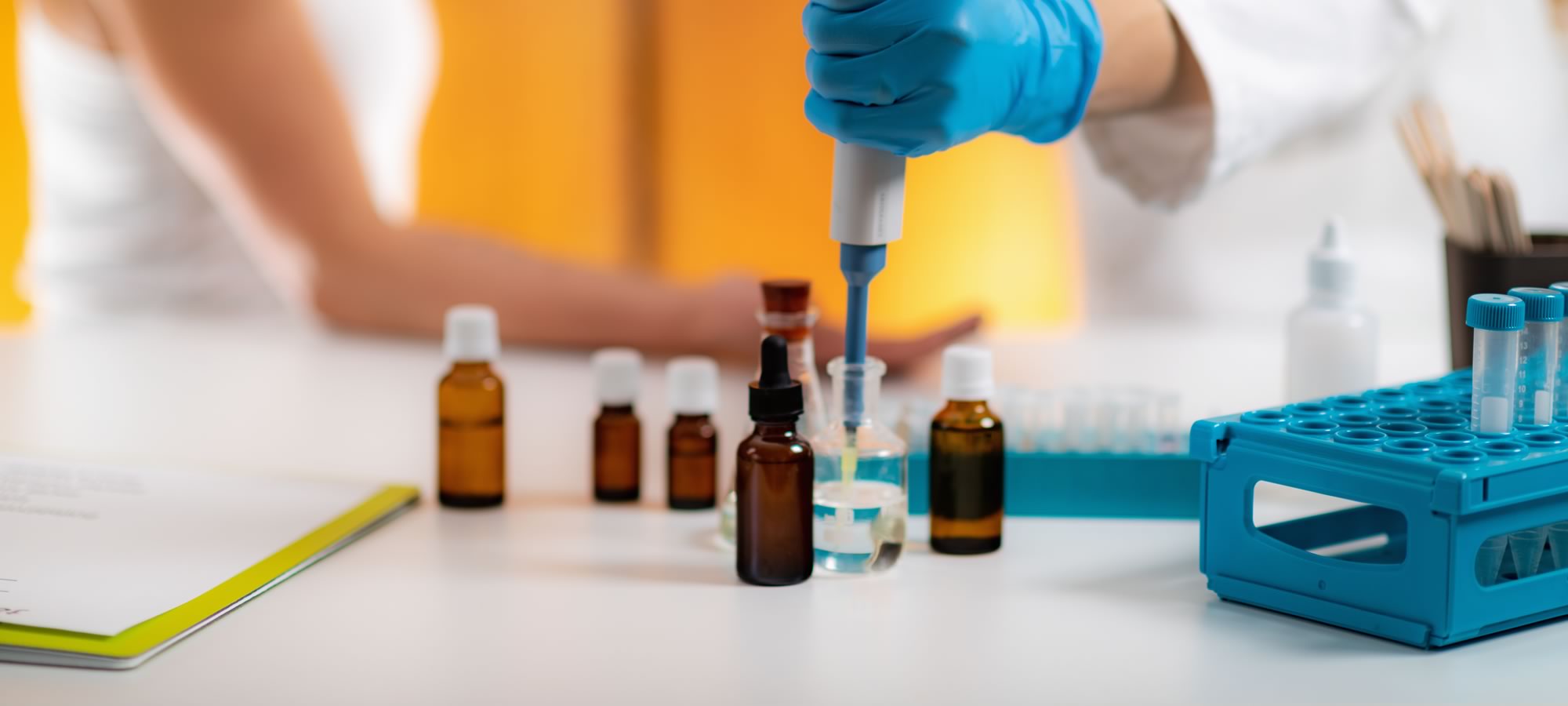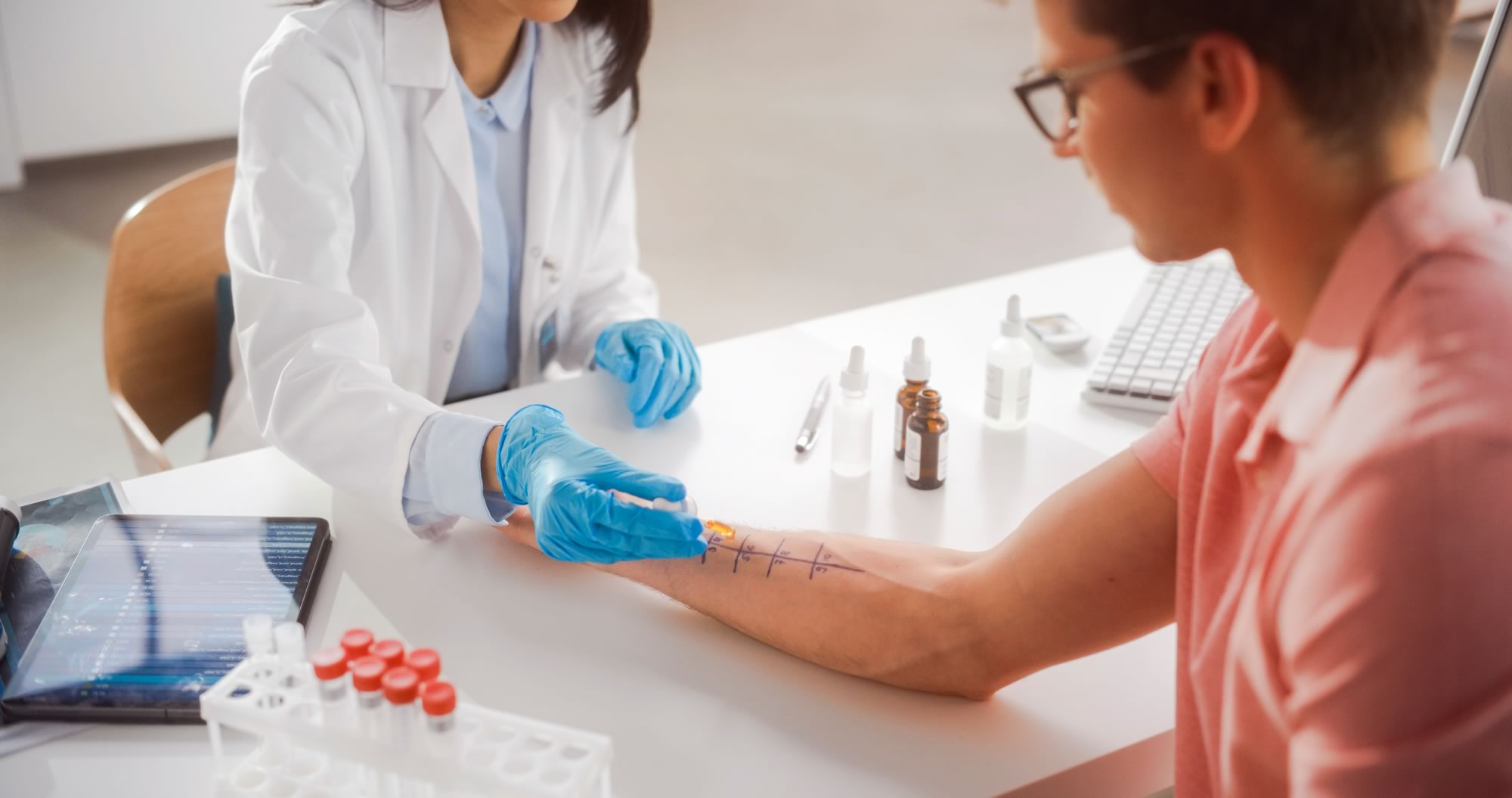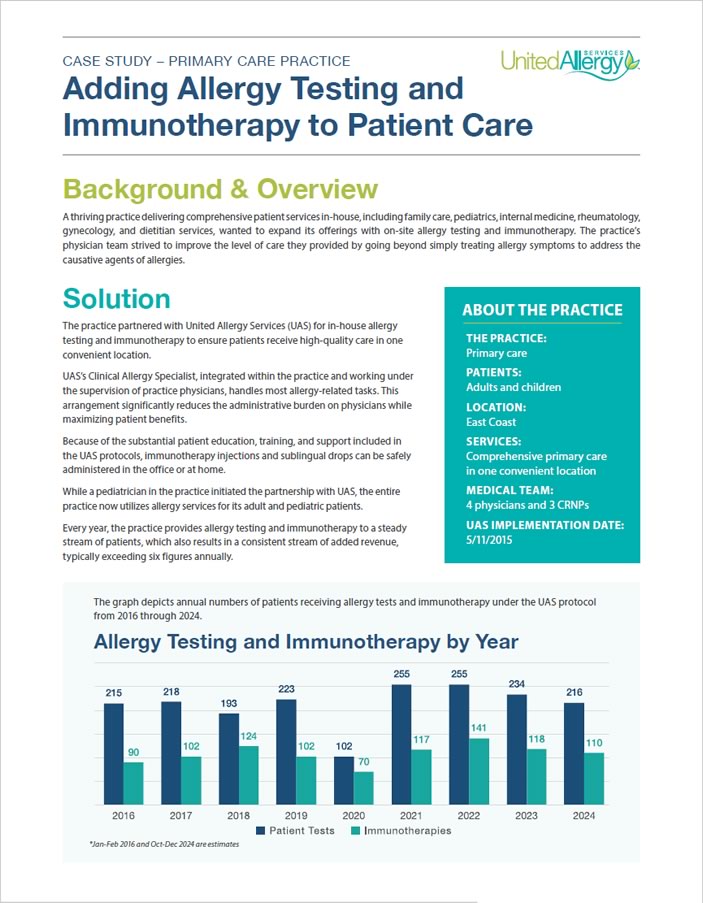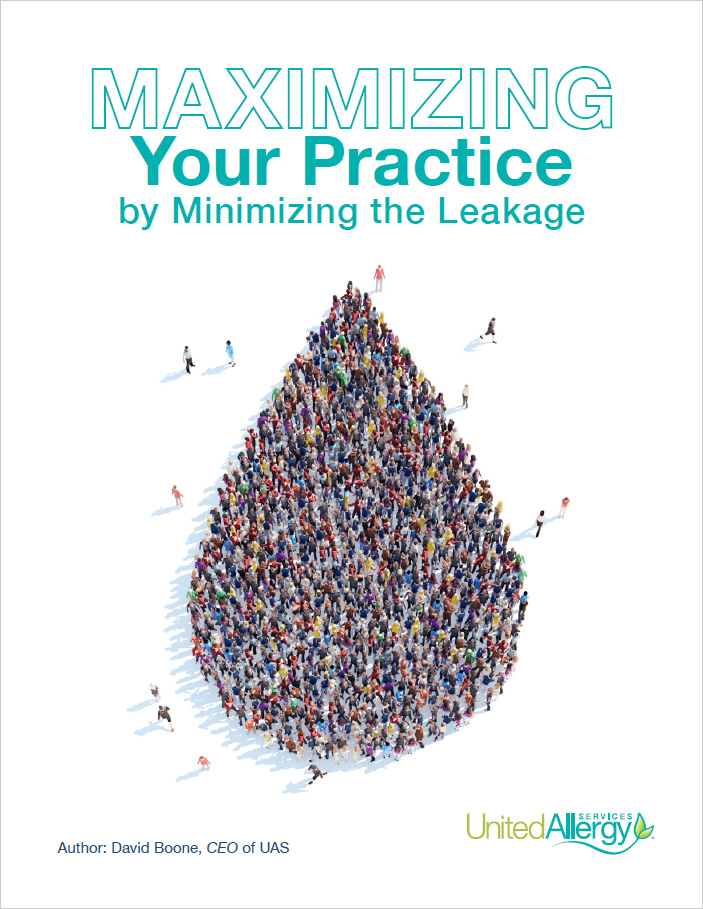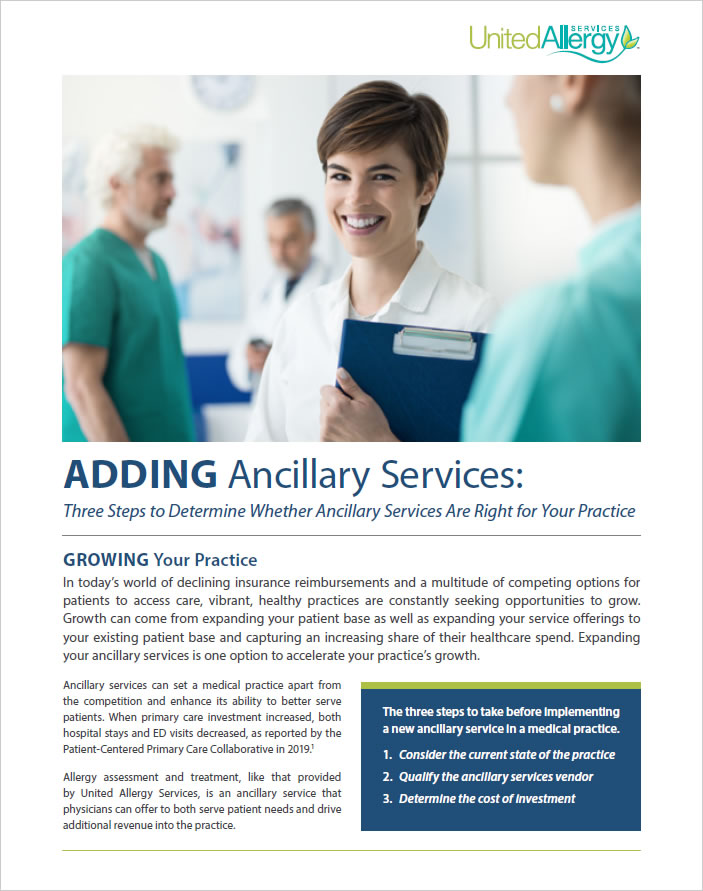Fall Allergy Relief: How Provider Practices Can Lead the Way
As summer starts to give way to fall, and the first cool front arrives, many patients brace for seasonal allergies. While ragweed often steals the spotlight, fall allergy sufferers face a broader spectrum of triggers—from varied pollen sources to mold and dust mites. For many providers, this season presents an opportunity to extend comprehensive, compassionate care by offering in‑house allergy testing and treatment through a partnership with United Allergy Services (UAS).
The Hidden Mix of Fall Allergens
Patients may attribute sneezing, congestion, or itchy eyes solely to ragweed—but fall is a tapestry of allergens. Beyond ragweed, other weed pollens join the mix, while mold spores rise with damp, decaying leaves. When temperatures get cool enough to drive people indoors, dust mites can quietly aggravate symptoms. This multi‑layered scenario often overlaps with colds or asthma, complicating diagnosis. By harnessing in‑office allergy testing, providers can offer clarity at the earliest point of contact.
Personalized Diagnosis—Right in Your Office
United Allergy Services empowers practices to deliver allergy testing where patients already seek care. Using minimally invasive skin prick tests—covering a broad panel of environmental allergens including weeds, grasses, molds, and dust mites—providers can pinpoint the culprits swiftly and accurately. Waiting for referrals becomes unnecessary; instead, care starts immediately, grounded in the specifics of that patient’s sensitivities.

Flexible Treatment Options for Modern Lifestyles
Once allergens are identified, practices can seamlessly transition into treatment—choosing between allergy shots (subcutaneous immunotherapy) or Allergy Allay Drops®, UAS’s custom-formulated sublingual immunotherapy. Allergy shots are FDA‑approved and covered by most insurance plans; they’re administered in-office or at home following provider training and safety protocols. Allergy Allay Drops® offer a needle‑free alternative, tailored to each patient’s test results and history, increasing in dosage to build tolerance over time. Patients appreciate the convenience and flexibility—especially those hesitant about injections.
Embedded Expertise, Minimal Disruption
Through its ancillary service model, UAS enables primary care, pediatric, ENT, and pulmonology practices to deliver advanced allergy care while reducing administrative burdens. In the UAS-staffed model, a Clinical Allergy Specialist (CAS) integrates into the practice, handling testing logistics, patient education, and protocol administration under physician supervision; this model respects physician time while maintaining clinical control. For practices not ready for full-scale integration, UAS offers self-managed Testing & Immunotherapy Kits, supplying all necessary materials and online resources—at a low-cost entry point that still elevates patient care.
Benefits to both Patients and Medical Practice
This approach yields a compelling win-win. Patients receive timely, accurate care in a familiar environment, empowering them to manage symptoms before the worst of fall allergy season hits. With immunotherapy—whether shots or drops—they stand a real chance of long-term allergy relief, rather than merely masking symptoms.
At the same time, medical practices expand their service offerings, retain more patients, and unlock new revenue streams. A case study from December 2024, for example, describes how a mixed adult-and-pediatric clinic implemented UAS’s in‑house testing and immunotherapy. Since bringing allergy care in-house, the practice reduced sick visits, improved patient compliance, and realized consistent ancillary revenue—often exceeding six figures annually.
Backed by Proven Protocols
United Allergy Services has been empowering medical practices since 2009, with over 2,500 partnering practitioners across more than 20 states conducting hundreds of thousands of tests and millions of treatments. Our protocols have a proven track record and have been used by more people than any other immunotherapy treatment in the US.
Fall Is Closer than it Appears
The key to winning the battle against allergies this fall lies in getting ahead. Partnering with UAS means being ready before patients begin scrambling for over-the-counter relief. Whether opting for the full-service allergy center or a kit-based model, integrating allergen testing and immunotherapy positions your practice as a true ally in patient wellness—offering solutions that go beyond the sniffle.
The rich infrastructure and proven partnership models offered by UAS make scaling allergy care simple. Complete the contact form here to have a UAS representative contact you and help determine which model is right for you—either way, your practice gains new capabilities without losing focus.
Allergy Services for Primary Care Physicians: Expanding Access to Long-Term Allergy Relief
Allergies affect more than 100 million people each year. Yet despite their widespread impact, allergies often go untreated due to the scarcity of specialist care. That’s why United Allergy Services is focused on introducing allergy treatment and immunotherapy to primary care practices—the first and often only point of contact for patients suffering from allergies. Let’s look at how UAS is making allergy care part of primary care.
Allergies are among the most common chronic conditions in the United States. Yet, despite the prevalence of food and environmental allergies and the associated health complications—including allergic asthma, sinus infections, and even anaphylaxis—many patients never receive proper diagnosis or treatment. Instead, they rely on over-the-counter medications that only mask symptoms rather than addressing the root cause.
Allergy Care Is Primary Care
Primary care physicians (PCPs) are often the first and only point of contact for patients suffering from allergies. By incorporating allergy testing and immunotherapy into their practice, PCPs can offer their patients a comprehensive, long-term solution, without the need for frequent specialist referrals. Allergy immunotherapy is the only treatment proven to modify the immune response to allergens, providing lasting relief rather than temporary symptom control.
United Allergy Services: Bringing Allergy Testing & Treatment to PCPs
United Allergy Services (UAS) partners with primary care providers to offer in-office allergy testing and customized immunotherapy treatment, enabling them to expand their scope of care with minimal additional workload. Since 2009, UAS has successfully partnered with over 2,500 practitioners across more than 20 states.
How UAS Supports PCP Practices
UAS offers two models for PCPs: a UAS-staffed Allergy Center or a self-managed Testing & Immunotherapy Kit package.
The UAS Allergy Center is fully supplied, staffed and managed by UAS. It is designed to integrate seamlessly into the practice with minimal disruption or outlay. This program includes:
- Clinical Allergy Specialists (CAS): Trained, onsite professionals who educate patients, conduct allergy testing, and coordinate immunotherapy.
- Comprehensive Food and Environmental Allergy Testing: Identifies sensitivities to pollen, dust mites, mold, and pet dander as well as certain foods (e.g. peanuts, lactose).
- Custom Immunotherapy Plans: Based on proprietary protocols, personalized allergy treatment options include subcutaneous (allergy shots) and sublingual (allergy drops) to maximize patient convenience and adherence.
- Full-service Supply & Compliance Management: UAS handles all allergy center supplies, from test extracts to patient education materials, ensuring a seamless experience.
- Insurance & Billing Support: Our team assists with reimbursement processes, making allergy services accessible and affordable for both patients and practices.
With the UAS Testing & Immunotherapy Kits, practices can enhance patient care while maintaining flexibility in how allergy services are incorporated. The Kit option includes:
- Environmental Allergy Testing Kit: Screens for 54 regionally relevant allergens, including trees, grasses, weeds, molds, and pet dander.
- Food Allergy Testing Kit: Identifies sensitivities to 23 common food allergens with panels tailored for adult and pediatric patients.
Both kits include personalized subcutaneous or sublingual immunotherapy options through UAS’s prescription-based formulations.
The Value of Experience
United Allergy Services has an unequalled record of success in delivering effective allergy treatment:
- UAS has more patients on our protocol than any other allergy service provider in the United States.
- We have partnered with more than 2,500 providers in 20+ states to provide allergy testing and immunotherapy services.
- Since 2011, UAS has conducted over 575,000 allergy and food sensitivity tests and served over 350,000 patients with 36+ million immunotherapy treatments in our allergy care clinics.
Enhancing Allergy Care in Primary Practices
With limited access to allergy specialists, many allergy sufferers and their doctors are forced to rely on medications that only mask allergy symptoms, increasing the risk of patients developing long-term respiratory conditions such as asthma.
By partnering with United Allergy Services, primary care practices are able to provide convenient, in-office testing for the full range of allergies and food sensitivities along with safe, well-proven immunotherapy.
Patients enjoy dramatic improvements in quality of life while PCP practices achieve higher levels of patient care and overall satisfaction.
Allergy Testing Kits & Immunotherapy from UAS: A Flexible Solution
Adding allergy care allows healthcare providers to address a common patient need and create a new income stream within the existing framework of their practice. However, we know that every medical practice has different requirements. For practitioners looking to integrate allergy testing and treatment without committing to a fully staffed and supplied UAS allergy center, we offer a flexible alternative: allergy testing kits and immunotherapy.
Expanding patient services with ancillary offerings such as allergy testing and immunotherapy is an effective way for medical practices to counter the stiff financial headwinds many are facing. Adding allergy care allows providers to address a common patient need, improve satisfaction, and create a new income stream, all within the existing framework of their practice.
However, every practice operates differently, with unique workflows, staffing models, and space considerations. For providers looking to integrate allergy testing and treatment without committing to a fully staffed and supplied UAS allergy center, we offer a flexible alternative. UAS Allergy Testing Kits & Immunotherapy enables practices to incorporate in-house allergy care while maintaining operational efficiency and clinical control.
Allergy Testing Kits Designed for Clinical Flexibility
UAS offers comprehensive allergy test kits for both environmental and food allergy testing, equipping providers with everything needed to administer skin prick allergy tests in-office. Each allergy testing kit includes test materials, patient education resources, and virtual training to ensure staff readiness. Ongoing customer support is available for clinical guidance, operational questions, and prescription fulfillment.
- Environmental Allergy Testing Kit: Screens for 54 regionally relevant allergens, including trees, grasses, weeds, molds, and pet dander.
- Food Allergy Testing Kit: Identifies sensitivities to 23 common food allergens with panels tailored for adult and pediatric patients.
Comprehensive Immunotherapy Options
Practices offering allergy treatment can provide personalized immunotherapy through UAS’s prescription-based formulations:
- Subcutaneous Immunotherapy (SCIT): Allergy shots available in single or dual-vial sets for long-term symptom relief.
- Sublingual Immunotherapy (SLIT): Allergy Allay Drops® offer a convenient, at-home alternative to injections.
A Scalable Approach to Allergy Care
With the UAS Allergy Testing Kits & Immunotherapy, practices can expand their services in a way that aligns with their needs—whether through occasional in-office testing or a more structured allergy treatment program. This solution allows providers to enhance patient care and practice growth while maintaining flexibility in how allergy services are integrated.
For more information on how the UAS Allergy Testing Kits & Immunotherapy can fit into a practice, contact United Allergy Services.
Pediatrics: How Early Allergy Testing & Treatment Can Benefit Young Patients
Allergies are a common yet often overlooked concern in pediatric care, affecting millions of children across the U.S. While allergy symptoms like sneezing, itchy eyes, and congestion may seem minor, untreated allergies can lead to more serious conditions, including asthma, chronic sinus infections, and sleep disturbances.
Early allergy testing and treatment can significantly improve a child’s quality of life, preventing unnecessary discomfort and long-term health issues. United Allergy Services (UAS) partners with pediatricians to provide in-office allergy testing and immunotherapy, ensuring children receive timely and effective care.
For pediatricians, adding allergy testing and treatment services to their practice offers clinical benefits for young patients and provides a valuable opportunity to enhance their scope of care with ancillary medical services.
Common Pediatric Allergy Symptoms
Identifying allergies in children can be challenging since symptoms often mimic those of colds or respiratory infections. Parents and healthcare providers should be aware of key indicators such as:
- Persistent nasal congestion or sneezing
- Itchy, watery eyes
- Skin reactions, including eczema or hives
- Frequent ear infections or sinus infections
- Coughing, wheezing, or shortness of breath
- Sleep disturbances due to congestion or postnasal drip
Common Triggers
Children’s allergies often stem from seasonal allergens like pollen, as well as perennial allergens such as:
- Dust mites
- Pet dander
- Mold spores
- Certain foods (though UAS treats only environmental allergies)
As previously noted, without proper diagnosis and management, allergies can lead to more severe conditions, including asthma and chronic respiratory issues.

The Importance of Early Allergy Testing
Research shows that early allergy testing and treatment can prevent the progression of allergic rhinitis into asthma. According to the Preventive Allergy Treatment (PAT) study, 45% of untreated children developed asthma over 10 years, whereas only 25% of children who received allergen immunotherapy (AIT) developed asthma. Early identification allows for targeted intervention, helping children avoid unnecessary medications, frequent doctor visits, and reduced quality of life due to persistent symptoms.
How Pediatric Allergy Testing Works
United Allergy Services offers in-office skin prick testing, which is:
- Safe – Designed specifically for children, non-invasive, and physician-supervised
- Efficient – Identifies common environmental allergens within a single visit
- Accurate – Provides a clear picture of a child’s specific sensitivities, enabling a personalized treatment approach
Treatment Options & Benefits of Early Intervention
Once allergens are identified, families can choose from several treatment options:
1. Allergen Avoidance Strategies
- Reducing indoor allergen exposure (e.g., air purifiers, hypoallergenic bedding).
- Implementing seasonal precautions, like keeping windows closed during peak pollen times.
2. Medication Management
- Non-drowsy antihistamines, nasal sprays, and leukotriene inhibitors can help manage symptoms but do not address the root cause.
3. Immunotherapy
Unlike symptomatic relief medications, allergen immunotherapy (AIT) builds long-term tolerance by gradually desensitizing the immune system to allergens.
- Subcutaneous Immunotherapy (SCIT): Administered via injections under the provider’s supervision.
- Sublingual Immunotherapy (SLIT): Allergy drops placed under the tongue for at-home administration.
The Proven Benefits of AIT in Children
- Reduces symptoms of allergic rhinitis and asthma
- Decreases the likelihood of developing new allergies over time
- Lowers long-term healthcare costs by reducing medication dependence and emergency visits
- Prevents progression from allergic rhinitis to asthma
Studies have shown that pediatric patients who undergo immunotherapy experience lasting allergy symptom relief even years after stopping treatment.
Enhancing Pediatric Care with Allergy Services
Many children with allergy-related conditions visit pediatricians first. By integrating allergy testing and treatment, pediatricians can:
- Improve patient outcomes – Address allergies at their source rather than just treating symptoms
- Provide comprehensive care – Reduce the need for specialist referrals while managing allergies in-house
- Support long-term respiratory health – Prevent complications like asthma and chronic sinus issues
The United Allergy Services Advantage for Pediatricians
UAS provides a seamless, physician-supervised allergy program tailored for pediatric practices:
- Customized Immunotherapy: Personalized treatment plans based on each child’s allergy profile.
- In-Office Allergy Testing & Treatment: Delivered within the pediatrician’s practice, improving accessibility for families.
- Convenience for Families: Allows children to receive care from a trusted provider in a familiar setting, with at-home immunotherapy options available.
- Proven Safety & Efficacy: UAS analyzed the systemic reaction rate of 15,000 pediatric patients, six to 17 years of age, using the physician-approved proprietary UAS immunotherapy protocol. Out of that population, a total of 10 patients experienced systemic reactions, all of which were very mild (grades 1 to 2). This represents a reaction rate of 0.06% in pediatric patients. (Reported literature of systemic reactions by allergists is between 3-7% for all age groups.)
Adding UAS allergy services helps pediatricians expand their practice offerings while ensuring high-quality, evidence-based allergy care.
Conclusion
Allergies are more than just a seasonal nuisance. They can impact a child’s health, development, and overall well-being. Early allergy testing and immunotherapy can significantly reduce symptoms, prevent the progression of allergic diseases, and improve long-term outcomes.
For parents, now is the time to consider early allergy testing for children experiencing persistent allergy symptoms. For pediatricians, integrating UAS’ in-office allergy program is an effective way to enhance patient care, improve clinical outcomes, and provide families with accessible, long-term allergy solution.
The Primary Care Practice Crisis: It’s Time to Play Offense
In an article published in Medical Economics, Brad J. Scoggins, FO, DAAP contends that it’s not enough for medical practices to counter adverse market forces by cutting costs and streamlining operations. He argues that practices must take steps to generate more revenue—specifically by offering embedded services from an established specialist provider.

Scoggins is one of United Allergy Services’ newest allergy partners, and he uses that experience as the proof of his argument that the fastest way to ramp up revenue is by “. . . offering embedded clinical services from an established specialist partner . . . that can be integrated into the practice’s clinical, operational and financial workflows.”
“It is hard to miss the headlines about the unprecedented challenges threatening family and internal medicine across the primary care spectrum,” Scoggins writes. “This traditional and essential gateway to health care in the United States is buckling due to:
- Crushing administrative burdens from payers
- Accelerating costs exacerbated by inflationary pressures
- Anemic reimbursement rates that don’t keep pace with the first two threats
- Corporate competitors like Amazon and CVS blurring the primary care sector for patients
Scoggins acknowledges that “playing defense” against such threats is essential and that most practices are doing everything they can to streamline workflows, leverage technology, manage costs, and negotiate the best possible contracts with payers.
However, these defensive tactics don’t address one of the biggest issues facing providers: patient leakage. According to Scoggins, “It is common for primary care practices to refer patients out for services that they don’t offer, along with the revenue those treatments represent. Patient leakage due to referrals . . . is a key cause of stress on independent and large group primary practices alike.”
The solution, he says, is to recapture those referrals. “Assuming a practice is effectively delivering all the routine core primary care treatments and services, it is time to expand into ancillary medical services and the additional revenues and other benefits they represent.”
As mentioned, Scoggins focuses on allergy testing and treatment “. . . as an opportunity for primary care practices to diversify services, meet growing patient demand, keep patients within the practice, and generate substantial new revenue.”
As Scoggins notes, “Primary practices that are offering ancillary allergy services to their patients are not only capturing a larger share of patient health care spend and alleviating reimbursement pressures, but on average a practice could consistently generate an additional $150,000 to $250,000 yearly (based on practice size and payer mix). Oftentimes, that revenue range is equivalent to what an additional physician could produce for the medical practice, but with a much smaller footprint and administrative cost.”
Ready to review the full article?
Case Study: Adding Allergy Testing and Immunotherapy to Patient Care
A thriving practice delivering comprehensive patient services in-house, including family care, pediatrics, internal medicine, rheumatology, gynecology, and dietitian services, wanted to expand its offerings with on-site allergy testing and immunotherapy. The practice’s physician team strived to improve the level of care they provided by going beyond simply treating allergy symptoms to address the causative agents of allergies.
Solution
The practice partnered with United Allergy Services (UAS) for in-house allergy testing and immunotherapy to ensure patients receive high-quality care in one convenient location.
UAS’s Clinical Allergy Specialist, integrated within the practice and working under the supervision of practice physicians, handles most allergy-related tasks. This arrangement significantly reduces the administrative burden on physicians while maximizing patient benefits.
Because of the substantial patient education, training, and support included in the UAS protocols, immunotherapy injections and sublingual drops can be safely administered in the office or at home.
While a pediatrician in the practice initiated the partnership with UAS, the entire practice now utilizes allergy services for its adult and pediatric patients.
Every year, the practice provides allergy testing and immunotherapy to a steady stream of patients, which also results in a consistent stream of added revenue, typically exceeding six figures annually.
About the Practice
THE PRACTICE: Primary care
PATIENTS: Adults and children
LOCATION: East Coast
SERVICES: Comprehensive primary care in one convenient location
MEDICAL TEAM: 4 physicians and 3 CRNPs
UAS IMPLEMENTATION DATE: May 11, 2015
A Win-Win
Prior to the partnership with UAS, practice physicians referred allergy patients to an outside specialist. Since adding allergy services in-house, the practice has seen:
- The growth of on-site allergy testing
- A reduction in the number of sick visits related to allergies
- Patients who feel more comfortable with testing and immunotherapy due to the convenience and comfort of it being provided in familiar surroundings
- Higher patient compliance with allergy treatment protocols
The practice’s patients now see allergy testing and immunotherapy as an integral part of the services they receive and report that it is more cost-effective than getting the same
care from a specialist. For the practice, offering allergy services helps keep patients within the office for coordinated care.
When asked why the practice chose to partner with UAS instead of providing a home-grown allergy service solution, the Director of Operations offered the following:
“UAS provides comprehensive support in deploying our allergy services. The team provides labor-intensive operation support, such as marketing, employee management, prior authorization, and screening processes. Most importantly, the UAS leadership team provides protocol compliance, quality assurance, and consultation support to ensure that every patient receives the greatest care possible.”
Patient Success Story
Here’s just one patient’s perspective on her experience with UAS after having received allergy injections since July 28, 2023:
“Prior to me taking allergy injections, I was constantly sick, catching colds, bronchitis, all kinds of upper
respiratory infections, and having asthma attacks. Being treated with steroids and antibiotics for the majority of
my life really made me tired.“Finally, at the age of 48, I got sick of being sick and just decided to try immunotherapy. I scheduled my
appointment with our lab, and that is where I met the amazing Clinical Allergy Specialist, Megan. She is a very
confident, knowledgeable, friendly and patient individual. She walked me through the process and made sure to
answer any and all questions or concerns.“Since I have been on allergy injections, my life has changed tremendously. I have not had any major colds or
anything. Even my doctor made a comment when I came in for my physical. She was surprised that she had not
seen me for any sick visits. Thanks to your amazing staff. They are truly making this process a great experience.”
Conclusion
Every practice stakeholder benefits from providing in-house allergy care as an ancillary service. Allergy testing and immunotherapy deliver an additional revenue stream, improve patient outcomes, and free up time for physicians to focus on other health issues due to the support that’s in place for their chronic allergy sufferers.
Patients appreciate the one-stop convenience while receiving high-quality services that help improve their lives. The integration of allergy services has enhanced patient satisfaction and strengthened the practice’s financial stability and potential for growth.
Maximizing Your Practice by Minimizing the Leakage
Does your medical practice have leaks? Is your growth hindered by “lost business” that negates the full impact of new patient growth? One of my favorite business expressions is from Roger Enrico, the former CEO of PepsiCo, who would say: “Growth is what matters.” It was one of the cornerstones that made PepsiCo the evolving company that it is and helped form the company’s distinguishing strategy.
Growth Comes in Many Forms
- Acquiring New Patients
- Raising Prices
- Capturing More of Your Existing Patients’ Healthcare Needs
Real growth comes from acquiring new patients and providing more services to your existing patients. Raising prices, which is not much of an option in today’s insurance reimbursement-dominated world, is often a fool’s errand and not real growth. It may create short-term revenue increases, but, at some point, the economics of supply and demand take over and patients leave for cheaper alternatives.
It is also said that if you are not growing, you are dying. In any business, growth is the pathway to sustainability for the company, its employees and customers. Many businesses have come and gone. Margins decline, investment in marketing and other customer-facing enticements disappear, and the business spirals downward. There are many examples of companies like this: Sears, Kodak, RCA, and Bed Bath and Beyond are just a few. They lost sight of their customers’ needs, and their customers fulfilled those needs elsewhere.
Your practice is a business with similar needs and challenges. There are technologies and services that entice your patients every day, including urgent care, telemedicine, allergy care, spa services, concierge services, and lifestyle services such as hormone replacement and weight loss, to name a few. As your patients seek these services, where will they go? As they are lured away to meet their needs, will they return to you? Will this begin a downward spiral for your practice?
Did you know that a leaky faucet that drips at the rate of one drip per second can waste more than 3,000 gallons per year? That’s the amount of water needed to take more than 180 showers! Small leaks are often ignored, but over time, the impact can be staggering.
Does your practice have leaks? Is your growth hindered by “lost business” that negates the full impact of new patient growth?
Take a Look at Allergy Care Services
A smart way to grow is to find ways to expand your offerings and keep your patients within your practice. What services do your patients need that you can offer? Allergy care can be an easy starting point. Over 50 million Americans suffer from allergies and asthma. These patients can be miserable and often self-medicate to treat symptoms without addressing the underlying cause. In today’s world of rapidfire patient visits with limited time to diagnose, treat and counsel, it is common to refer these patients out for care.
More recently, these patients are being lured by multiple telemedicine options offering easy access to care. Allergy care is a perfect example of a service many of your patients need that you can provide. Nearly one in three U.S. adults and more than one in four U.S. children reported having a seasonal allergy, eczema or food allergy in 2021, according to new data from the Centers for Disease Control and Prevention’s (CDC) National Center for Health Statistics. Almost 6% of U.S. adults and children have a food allergy, with Black, non-Hispanic adults and children the most likely to report this type of allergy.
50million+
Americans diagnosed with seasonal and environmental allergies
24million
Americans have seasonal allergic rhinitis
3.1million
missed work days per year
Seasonal & Environmental Allergies
Take a look at data revealed in two new reports from the National Health Interview Survey: “Diagnosed Allergic Conditions Among Adults, United States, 2021” and “Diagnosed Allergic Conditions Among Children Aged 0 – 17 Years: United States, 2021.”
Findings from Adult’s Report1
- ABOUT ONE QUARTER (25.7%) OF ADULTS have a seasonal allergy, 7.3% HAVE ECZEMA and 6.2% HAVE A FOOD ALLERGY
- WHITE, NON-HISPANIC ADULTS ARE MORE LIKELY TO HAVE A SEASONAL ALLERGY (28.4%) compared with Black non-Hispanic (24%), Hispanic (18.8%) and Asian non-Hispanic (17.0%) adults
- The percentage of adults with ECZEMA IS HIGHER AMONG WOMEN (8.9%) THAN AMONG MEN (5.7%)
- BLACK NON-HISPANIC ADULTS ARE MORE LIKELY TO HAVE A FOOD ALLERGY (8.5%) compared with Hispanic (4.4%), White non-Hispanic (6.2%), and Asian non-Hispanic (4.5%) adults
Highlights from Children’s Report1
- NEARLY 1 IN 5 CHILDREN (18.9%) HAVE A SEASONAL ALLERGY, 10.8% have eczema and 5.8% have a food allergy
- BOYS (20%) ARE MORE LIKELY TO HAVE A SEASONAL ALLERGY THAN GIRLS (17.7%)
- CHILDREN 6 – 11 YEARS ARE MOST LIKELY TO HAVE ECZEMA (12.1%), followed by children 0 – 5 years (10.4%) and children 12 – 17 years (9.8%)
- BLACK NON-HISPANIC CHILDREN ARE MORE LIKELY TO HAVE A FOOD ALLERGY (7.6%) compared with Hispanic (5%) and White non-Hispanic (5.3%) children
1 Prevalence and Severity of Food Allergies Among US Adults. JAMA Network Open 2019. The Public Health Impact of Parent-Reported Childhood Food Allergies in the United States. Pediatrics 2018. Food Allergy in the United States: Recent Trends and Costs – An Analysis of Private Claims Data. FARE Health White Paper, November 2017.
85%
of asthma patients have allergic rhinitis
50% more
likely to have allergies if one parent has allergies
75% more
likely to have allergies if two parents have allergies
Allergy Care Supports Patient Retention
Where are these patients getting the care that they need today? Rather than risk losing these patients, you can partner with ancillary service providers such as United Allergy Services to offer the highest quality allergy testing and immunotherapy treatments in your office. United Allergy Services brings expertise in areas such as leading immunotherapy protocols, inventory management, clinical support, best practice management, staff recruiting/hiring/training, revenue cycle and more—freeing you and your staff to focus on providing the best clinical care for your patients while generating additional revenue.
As you think about your growth plans for this year, don’t forget to focus on stemming the leakage. It’s there, and it’s real. Let United Allergy Services enhance your practice by helping you extend the care you provide your patients.
Learn more about how UAS can improve your practice and create a patient-centered medical home with comprehensive care.
Why Offer Allergy Treatment for Children?
For providers passionate about providing care to the pediatric population, integrating fundamental allergy care into their practice can bring about significant benefits. Allergy screening, testing, and treatment fosters healthier lives and also enhances the overall quality of care that can be provided.
Allergy immunotherapy, commonly known as allergy shots or allergy drops, is a therapeutic approach designed to modify the immune system’s response to allergens. While regularly considered for adults, recent increased adoption by pediatric providers has paved the way for immunotherapy’s integration into pediatric care, offering a transformative option for managing allergies.
Advantages
One of the primary advantages of incorporating allergy immunotherapy into pediatric care is the potential for long-term relief from allergy symptoms. When children are exposed to small, controlled amounts of the allergens that they are allergic to, their immune system gradually builds tolerance. This can result in reduced severity and frequency of symptoms, decreased allergic reactions, decreased asthma exacerbations, preventing the development of asthma, and less antibiotic and steroid use, as well as leading to a significant improvement in the overall quality of life for pediatric patients.
For many pediatric patients with allergies, the standard approach involves medications to manage symptoms as opposed to foundationally changing the state of the disease. Medication issues can include high cost, unwanted side effects, and only partial control of symptoms. Allergy immunotherapy, however, offers a natural alternative that aims to modify the body’s immune response, substantially reducing or eliminating symptoms, and potentially reducing or eliminating the need for long-term medication use.

Individualized Immunotherapy
Every child is unique, and so are their allergies. Allergy immunotherapy allows for individualized and targeted treatment plans tailored to each child’s specific allergens, lifestyle, and the family’s financial situation. This individualized approach maximizes the potential for efficacy as well as adherence. Also, offering allergy immunotherapy as a pediatric provider creates an opportunity to further strengthen partnerships with parents and caregivers.
Collaborating on a comprehensive treatment plan fosters trust and active involvement in the child’s healthcare journey. It positions pediatric providers as already trusted members of the child’s healthcare team serving as proactive partners in managing and alleviating allergic conditions. This further positions pediatric practices as leaders in proactive and preventive healthcare for children.

How Does UAS Partner with Providers?
How can healthcare providers balance the demands for more patient quality time and the financial requirements for a sustainable practice? Although it may seem counterintuitive to offer an additional service line, doing so can deliver higher revenue, additional clinical support, and meet rising patient care needs.
Consider In-Office Allergy Testing and Treatment
While over 100 million Americans suffer from environmental and food allergies, only a fraction seek treatment from a specialist. This situation creates an opportunity for providers to offer allergy testing and treatment services inside the practice.
United Allergy Services (UAS) partners with providers to significantly enhance the clinical and financial performance of the practice and improve the lives of patients. We expand access to affordable, high-quality allergy care seamlessly delivered in-office, under the direction and supervision of the on-site provider.
How a Partnership Between Providers and UAS Works
UAS offers a range of options for testing and treatment for patients suffering from allergies, including:
- Food Allergy Testing: UAS tests to identify foods that the patient is allergic to and foods the patient may have a sensitivity or intolerance to. We can rule out a potential food allergy with a negative test. Once a patient’s specific allergies are identified, we then provide educational support regarding what foods these allergens can be found in to help the patient develop strategies to avoid them as best practice.
- Environmental Allergy Testing and Treatment: UAS tests for environmental allergies and then treats the patient with immunotherapy that modifies the underlying allergic condition instead of simply treating the symptoms. Immunotherapy is custom formulated from each patient’s allergy test and individual history, developed on-site at the practice. Treatments can be:
- Allergy shots administered in-office or at home by the patient, or
- Allergy Allay Drops® (UAS’s branded sublingual immunotherapy) administered by the patient at home
There are three UAS partnership structures to choose from:
- UAS-Staffed Allergy Center: Fully staffed with a Clinical Allergy Specialist (CAS) and integrated UAS allergy services imbedded within the practice, with all clinical decisions driven by the provider
- Self-Managed Kit Package: Provider practice receives online learning modules, supplies and customer support for everything needed to provide allergy testing and treatment solutions, with existing practice staff providing and managing the allergy services
- Flexible Hybrid Package: Staffing-only solutions:
- UAS hires and manages an allergy technician for practices that have their own allergy protocols but have a difficult time hiring
- UAS can fully train and support the practice’s employee on the UAS protocol and provide the full range of services, systems and support as in the UAS-staffed model
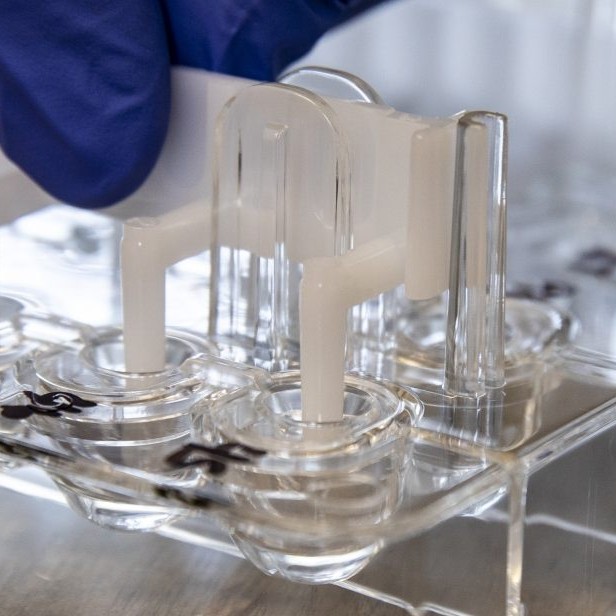
A Win-Win for Providers and Patients
A partnership with UAS enables practices to offer convenient in-house allergy care that improves patient quality of life and satisfaction while generating additional revenue. The practice maintains full clinical control and can easily test, treat and educate patients on environmental and food allergies with comprehensive UAS solutions including practice training, supplies, customer support, patient education tools and marketing materials.
By providing an alternate workstream within the practice, providers can free up their time to attend to other patients who need them while UAS helps take care of the allergy patients.

Why Offer Allergy Care Services in Your Medical Practice?
More than 100 million Americans suffer from environmental, seasonal and perennial allergies, including ragweed, pollen, dust mites and animal dander. In addition, roughly 11% of adults and 7½% of children have a food allergy. Unfortunately, only a fraction seek treatment from a specialist, resulting in an annual cost of $18 billion to the healthcare system and businesses in the U.S.1
Most patients self-medicate with over-the-counter medications, but allergy relief can be elusive. The underlying cause of the condition still goes untreated and leaves patients suffering. The numbers are alarming, as 30% of adults and 40% of children struggle with allergies in the U.S.2
At the same time, providers are getting squeezed between wanting more time for quality patient care and the financial demands that ensure sustainable revenue for the practice.
On-Site Allergy Testing and Treatment
United Allergy Services (UAS) helps by partnering with medical practices to deliver in-office allergy testing for environmental and food allergies. While food allergies are usually dealt with by avoiding the allergen, environmental allergies can be successfully treated via immunotherapy.
Adding this service line improves the lives of patients by expanding access to affordable, high-quality allergy care as a seamless part of the practice and delivers an additional revenue stream to drive financial performance.
Why Immunotherapy?
Allergen-specific immunotherapy has been used to treat environmental allergic issues for over a century. It is the only treatment that addresses the immune dysfunction underlying allergic responses rather than simply treating symptoms or suppressing inflammation. It has been proven safe and effective in treating issues such as allergic rhinitis and asthma and can be offered by a primary care provider without needing to send the patient out to a specialist.3
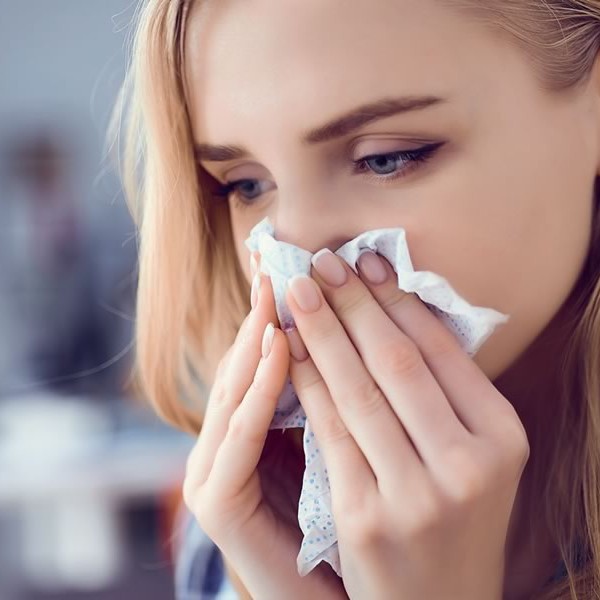
How Partnering with UAS Works
UAS partners with providers to test patients for allergies in the office and then creates a custom formulated immunotherapy from the patient’s allergy test and individual history. Treatments include:
- Customized immunotherapy based on the patient’s history and test results is formulated onsite under provider supervision
- Allergy shots administered in-office or at home by the patient, or
- Allergy Allay Drops® (UAS’s branded sublingual immunotherapy) administered by the patient at home
UAS delivers a range of options for providers, including:
- UAS-Staffed Allergy Center: Fully staffed and integrated UAS allergy services within the practice itself (with all clinical decisions being driven by the provider)
- Self-Managed Kit Package: Provider practice receives online learning modules, supplies and customer support for everything needed to provide allergy testing and treatment solutions, with existing practice staff providing and managing the allergy services
- Flexible Hybrid Package: Staffing-only solutions
- UAS hires and manages the allergy technician for practices that have their own allergy protocols but have a difficult time hiring
- UAS can fully train and support the practice’s employee on UAS protocol and provide the full range of services, systems and support in the UAS-staffed model but with the practice employee operating as the allergy technician
A Win-Win for Patients and Providers
UAS allergy testing and treatment services are proven, flexible, and customizable. They directly meet the allergy health needs of patients without requiring them to go elsewhere, keeping patients – and their dollars – within the provider’s practice.
Click the button below to learn more about working with UAS to add allergy testing and treatment services to your practice.
1 https://www.webmd.com/allergies/allergy-statistics. Accessed 10.31.23.
2 Ibid. Accessed 10.31.23.
3 https://pubmed.ncbi.nlm.nih.gov/27927826/. Accessed 10.31.23.
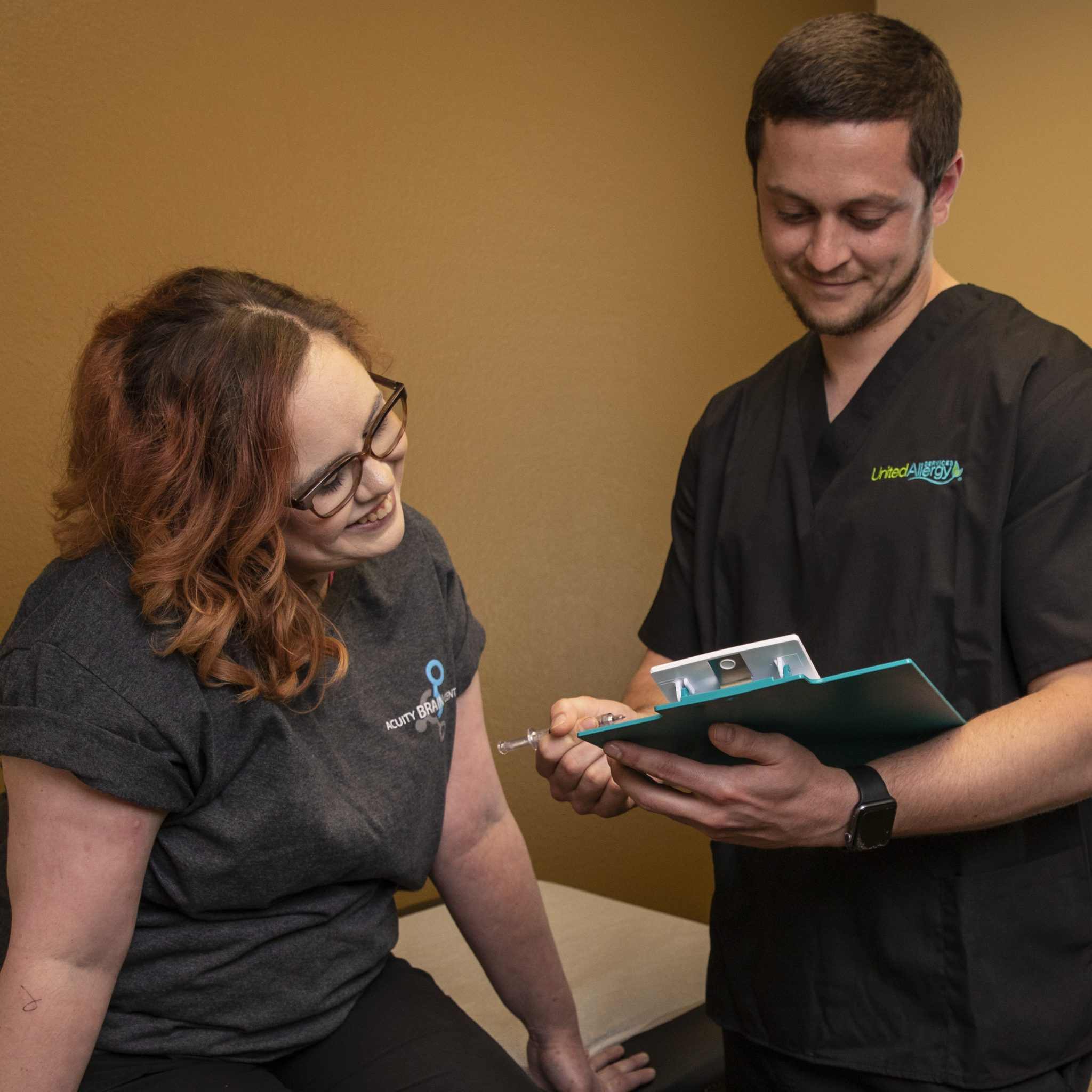
Ancillary Medical Services
In today’s world of declining insurance reimbursements and a multitude of competing options for patients to access care, vibrant, healthy practices are constantly seeking opportunities to grow. Growth can come from expanding your patient base as well as expanding your offerings by offering ancillary medical services to your existing patient base and capturing an increasing share of their healthcare spend.
Growing Your Practice with Ancillary Medical Services
Ancillary medical services can set a practice apart from the competition and enhance its ability to better serve patients. When primary care investment increased, both hospital stays and ED visits decreased, as reported by the Patient-Centered Primary Care Collaborative in 2019.
Allergy assessment and treatment, like that provided by United Allergy Services, is an ancillary service that physicians can offer to both serve patient needs and drive additional revenue into the practice.
Three Steps to Determine Whether Ancillary Medical Services Are Right for Your Practice
Before implementing an additional patient service in a medical practice, take these three steps:
- Consider the current state of the practice
- Qualify the ancillary services vendor
- Determine the cost of investment
1. Reflect on the Practice
The first step is evaluating the practice for untapped potential in both the physical space and services offered. What services are your patients seeking elsewhere either by choice or your referral patterns? These services could be services covered by insurance or they could be consumer-based medical services that your patients are exposed to through other care outlets. The advent of internet-based care outlets has greatly expanded the demand for certain services.
Missed Opportunities
A study published in the Journal of the American Board of Family Medicine (JABFM) noted that physicians are often unable to close the referral loop due to lack of referral completion. In fact, 17% of referred patients do not see the specialist to whom they are referred, according to the JABFM study. Is there a needed service in your community that your practice can fill?
Existing Infrastructure
Available space along with current staff productivity levels and credentials impact the practice’s ability to execute additional patient services. Consider how much time and money it would take for staff education and office renovation before a new service line would be functional in the existing practice.
Patient Evaluation
Alignment with patient needs is critical for the success of any ancillary medical service implementation. Consider the areas of common patient referrals, insurance contracts on file that may influence reimbursement rates, and patient perception of the practice.
17%
of referred patients do not see the specialist to whom they are referred
2. Qualify the Ancillary Medical Services Vendor
Patient care should meet or exceed current practice standards. Ask the vendor:
- What additional patient services do they deliver through implementation and beyond?
- What is their track record?
- What sets them apart from their peers?
Resource Leveraging
A valuable partner will offer provisions that boost the likelihood of success when implementing a new service. Look for available customer support expertise in legal regulations and payer reimbursement for the additional patient services you may onboard. When you meet with a prospective vendor, ask about their expectations regarding qualified candidates for their services and reasonable revenue expectations for the practice.
Vendor Reputation
Partnership with an outside vendor requires a high level of trust. Review the vendor’s references and referrals from colleagues as well as their longevity and experience. Vet potential vendors by researching clinical studies that review the company’s protocols.
3. Determine the Cost of Investment
An expansion of services may require additional resources. Consider the financial investment and the potential ROI opportunity after implementation.
Filling a Gap in the Market
Consider whether adding an ancillary medical service to the practice will be profitable. The most popular ancillary medical services adopted by internal and family medicine are lab services, ECG, prescription dispensing, and radiology/imaging. Adding an ancillary service into a market that is saturated may not be a good business decision. While shopping around for service line vendors, consider what unique market gap you can fill that fits your patient base.
Vendor Buy-In
Choose a vendor with infrastructure to handle not only implementation but staffing and ongoing customer assistance. This backing will help lower upfront costs needed for training and reduce the impact on productivity among existing team members.
What Is Your “Return on Effort“?
Your and your staff’s time is a precious resource. Any investment of time and money should generate a sufficient return to justify the expense. Here are a few questions to answer:
- What is the expected demand for the product or service?
- How will you identify potential patients/consumers?
- What is your investment to initiate the service?
- What is your cost to deliver and maintain the service?
- Is this incremental to your practice, or will this replace or cannibalize some of your existing business?
You do not need an MBA to answer these questions. Your vendor and some common sense can help you answer them. Also, your physician community may have experience with the product or service and can help you develop a simple financial model of the potential revenue and costs.
Does It Work?
Adding a service to a practice should be beneficial for patients and improve ROI for the practice. Adding a service to an existing practice has the potential of improving patient adherence and minimizing the need for referrals overall. 70% of polled physician organization leaders noted that increasing the volume of services delivered is the top action that primary care and specialist physicians could take to increase their compensation.
Take a Look at On-Site Allergy Services
Over 100 million Americans suffer from allergies such as rhinitis (hay fever), food allergies and asthma, but only a fraction seek treatment from an allergist. United Allergy Services (UAS) empowers physicians to offer on-site allergy services that fit seamlessly into existing medical office workflows, expanding delivery of patient services and increasing revenue.
Since 2009, UAS has successfully partnered with more than 2,450 practitioners across 20+ states to deliver proven, flexible and customizable ancillary medical services that directly meet the allergy needs of patients without requiring them to go elsewhere. Treatment protocols include immunotherapy delivered by subcutaneous injections (allergy shots) in the physician’s office or at home as well as sublingual allergy drops self-administered at home by the patient. A UAS treatment group showed >40% improvement in allergy symptom scores compared to control through administration of immunotherapy. A 3-year course of immunotherapy has shown long-term clinical effects and the potential of preventing the development of asthma in children with allergic rhino conjunctivitis up to seven years post-treatment.
UAS medical partners maintain full clinical control and can easily test, treat and educate patients on environmental and food allergies with comprehensive solutions that include staff training, supplies, customer support, patient education tools and marketing materials.
The convenience of in-house allergy care both improves patient quality of life and satisfaction while generating additional revenue for the practice.
FSA/HSA Plans for Allergy Services
Environmental allergies are a common ailment that affects approximately 50 million Americans every year. Whether you suffer from year round or just seasonal allergies, you may be able to use your tax-free FSA/HSA funds to help you save money on education, allergy testing, and treatments. If you struggle with allergy symptoms—itchy eyes, congestion, and non-stop sneezing—you know how tough the spring and summer months can be. Over-the-counter drugs can help, but sometimes these remedies aren’t enough. As you compare options, you may notice the hefty price tag. Luckily, your health savings account (HSA) or flexible spending account (FSA) may offer some savings to your allergy relief.
What Exactly is an FSA or HSA Health Care Plan?
Flexible Spending Accounts (FSA) or Health Savings Accounts (HSA) are medical savings accounts with tax benefits, designed to allow you to set aside pre-tax savings to go towards your treatments, healthcare and other medical expenses.
Can I Use My FSA/HSA Plan for Allergy Testing?
For the majority of healthcare plans environmental and food allergy testing is an eligible FSA/HSA expenditure, meaning they allow the tests as a qualified medical expense. To make sure you’re covered, we recommend getting in touch with your provider to confirm your inclusions.
A qualified medical expense is defined in IRS Publication 502 as the cost of treatment, cure, diagnosis, mitigation or prevention of a disease. The expense must be used principally to prevent or help ease the symptoms of a physical/mental illness or disability in order to meet the criteria for HSA and FSA. Environmental sensitivity tests work to identify allergic triggers that may cause discomfort and allow you to avoid or mitigate the exposure. Similarly, food sensitivity tests identify digestive issues so you can alter your diet to try and prevent things like bloating, nausea and stomach cramps.
Other Allergy Related Questions?
Our team wants to help you make the most out of your benefits before they expire on January 1st. Visit our FAQ page for more insight, or find an allergy center near you by clicking here.



